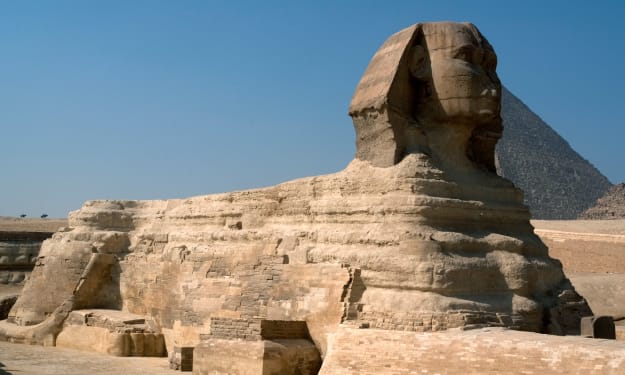
Introduction:
Cleopatra VII, the last active ruler of ancient Egypt, remains one of history's most intriguing and enigmatic figures. Her life, marked by political prowess, strategic alliances, and a legendary love affair with Roman leaders, has captured the imagination of scholars, artists, and storytellers for centuries. This exploration delves into the multifaceted persona of Cleopatra, shedding light on her rise to power, the intricacies of her reign, and the enduring impact she left on the ancient world.
I. The Early Years:
Cleopatra's journey begins in 69 BCE, born into the Ptolemaic dynasty that ruled Egypt. As the daughter of King Ptolemy XII, she inherited a kingdom marked by internal strife and external threats. Despite the challenges, Cleopatra displayed exceptional intelligence and linguistic abilities, mastering multiple languages, including Greek, Egyptian, and Latin.
Her education and exposure to diverse cultures fueled her ambitions, setting the stage for her future role as Egypt's queen. The young Cleopatra's determination and political acumen became evident as she navigated the complex dynamics of the Ptolemaic court, marked by familial rivalries and a struggle for power.
II. Ascension to the Throne:
In 51 BCE, following her father's death, Cleopatra ascended to the throne alongside her younger brother, Ptolemy XIII. The co-regency, however, quickly descended into conflict, with Cleopatra being exiled from Alexandria. Undeterred, she strategically aligned herself with Julius Caesar, the powerful Roman general.
Cleopatra's return to power, facilitated by Caesar's military intervention, marked the beginning of a transformative era for Egypt. The relationship between Cleopatra and Caesar not only solidified her rule but also introduced her to the intricate world of Roman politics.
III. The Roman Affair:
Cleopatra's liaison with Julius Caesar was not merely a romantic dalliance; it was a calculated political move. The union produced a son, who would later become a symbol of the intertwining destinies of Egypt and Rome. Despite their connection, Cleopatra faced political challenges in Rome, as her presence and influence became a source of contention among Roman elites.
Her subsequent involvement with Mark Antony, another prominent Roman figure, further intertwined the fates of Egypt and Rome. The infamous love affair between Cleopatra and Antony would go on to shape the course of history, leading to political alliances, military campaigns, and ultimately, tragedy.
IV. The Fall of Cleopatra:
As the Roman Republic succumbed to internal strife and power struggles, Cleopatra's alliance with Mark Antony faced increasing opposition from Octavian (later known as Augustus). The Battle of Actium in 31 BCE proved decisive, with Octavian emerging victorious. Cleopatra and Antony faced defeat, choosing a tragic end rather than submitting to Roman captivity.
In 30 BCE, Cleopatra and Mark Antony took their lives, a dramatic conclusion to a saga marked by political intrigue and personal passion. With their deaths, Egypt became a province of the Roman Empire, and Cleopatra's legacy took on a mythic quality that endured through the ages.
V. Legacy and Historical Impact:
Cleopatra's legacy extends far beyond her dramatic personal life. Her reign left an indelible mark on the cultural, political, and artistic landscape of the ancient world. The blending of Egyptian and Hellenistic influences during her rule created a unique era of cultural exchange and innovation.
The enduring fascination with Cleopatra can be seen in the numerous artistic representations, including paintings, sculptures, and literature, that continue to capture the public's imagination. From Shakespeare's plays to Hollywood adaptations, Cleopatra's story has been retold and reimagined, contributing to her status as an iconic historical figure.
VI. Reevaluating Cleopatra:
Despite her historical significance, Cleopatra's image has often been shaped by biased accounts from ancient historians, particularly those with Roman perspectives. Modern scholars strive to reassess and reinterpret her legacy, seeking a more nuanced understanding of her achievements and challenges as a female ruler in a patriarchal society.
In recent years, efforts to unravel the mysteries surrounding Cleopatra's life have utilized archaeological findings, linguistic analysis, and a reexamination of historical records. This ongoing scholarly pursuit aims to present a more accurate and comprehensive portrayal of Cleopatra, shedding light on the complexities of her rule and the impact she had on the ancient world.
Conclusion:
Cleopatra, the Queen of the Nile, continues to captivate the world with her complex persona and extraordinary life. From her early struggles for power in Egypt to her strategic alliances with influential Romans, Cleopatra's story is one of political intrigue, cultural exchange, and enduring fascination. As scholars delve deeper into the historical records and artifacts associated with her reign, the enigma of Cleopatra only intensifies, ensuring that her legacy remains an integral part of our understanding of the ancient world.






Comments
G.I.B is not accepting comments at the moment
Want to show your support? Send them a one-off tip.